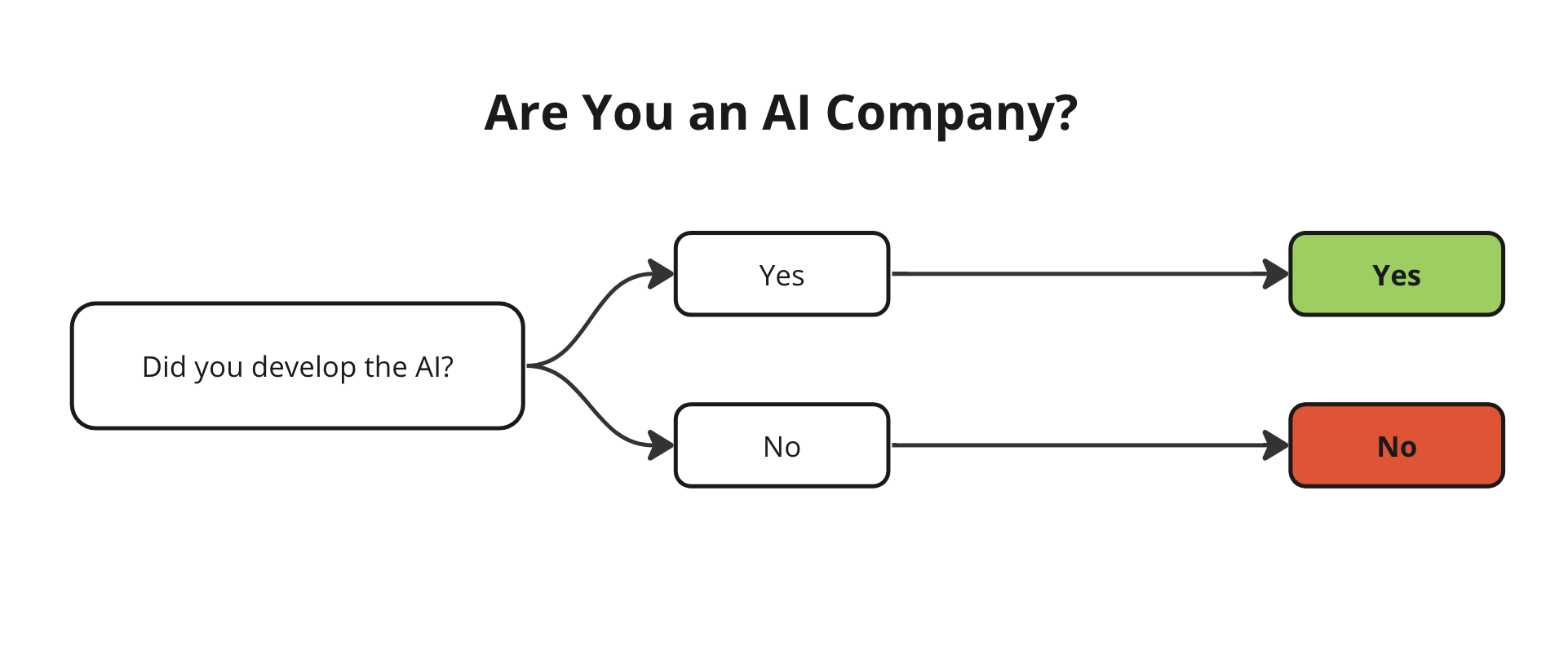
The Shortsightedness of AI as a Brand Identity
Why you're probably mis-categorizing your startup, and don't need to be
In 2007, Apple rebranded from ‘Apple Computers’ to ‘Apple’. This might not register as a significant change, but it holds a quiet importance that shouldn’t be understated. Not only did this better reflect their broader focus beyond just computers, but it was a strategic move away from a redundant moniker that bound their identity to the value prop of what would become an oversaturated, commonplace technology.
Why specify computers in your name when it’s the foundation of your industry?
Why bound the consumer perceptions of what your company is good for, at all?
Today’s analog
I roll my eyes into the back of my skull every time I see a startup wrapping 3rd party LLM APIs aggressively marketing themselves as an “AI startup”.
Alright not every time, so let me be clear about exactly who I’m referencing here. In my mind, there’s four distinct personas, each landing somewhere on this poorly made AI-Company-to-Company-Using-AI quadrant chart:

- AI Innovators & Leaders: Leading AI research and innovation, building the core technologies themselves
- Domain-Specific AI Solutions: Continuously improving & applying AI capabilities to specific domains or industries
- AI-Driven Integrators: Heavily leveraging AI in their offerings, but not necessarily involved in improving or building core AI technologies
- AI-Enabled Integrators: Using AI to enhance their offerings without being AI-focused, and no involvement in improving or building core AI technologies
I’m talking about those that fall into 4 & 3, and sometimes even 2. These are startups that, more often than not, should be treating AI capabilities as complementary features to an otherwise viable product, rather than shoving it out onto center stage.
The current landscape of web3 startups is a sobering example of the blast radius that can come with marketing yourself into a corner without an escape hatch. You took a megaphone and loudly told the world that your company is only really good for one thing - but now everybody is good at that thing (AI), or that thing kind of flopped (blockchain).
I’m not saying that going all-in on the next big thing as an identity is a patently bad move across the board. Depending on your goals and resiliency it could be a good one, but we want to consider it’s impact on the longevity of our business:
- Are you knowingly riding the wave for short term, non-repeatable revenue?
- Will your product stand on its own when AI doesn’t sell itself anymore?
- Will stakeholders trust you if you’re always pivoting to the next big thing?
In the positive case: Send it. Don’t read any further. Close this tab and get back to work.
In the negative case: Understand that it can be a redundant, short-sighted footgun for your brand identity to be so deeply woven in with technologies that, sooner or later, will either become foundational & obvious, or flop, and fade into obscurity. I’d even go as far to say that brazenly mis-categorizing yourself in this way is a dog whistle alerting to weak teams that are incapable of maintaining an authentic, consistent vision.
Looking forward
In the next 10 years - other than those advancing the bleeding edge of AI - there’s just not really going to be AI companies, apps, or features anymore. AI will have become so pervasively embedded in the way we build things, that they’ll just be companies, apps, and features again. Then something else will come along, and the cycle will start over.
So, forget about grabbing up those horrible little .ai domain names
And forget about littering marketing materials with ✨this emoji for some reason✨ and plastering AI all over the goddamn place
Most importantly - forget about building for hype, and remember to build for people
Position your business to embrace the tools of the future, and build great products with them; but don’t box yourself into being something you’re not, or that you don’t need to be in the first place.